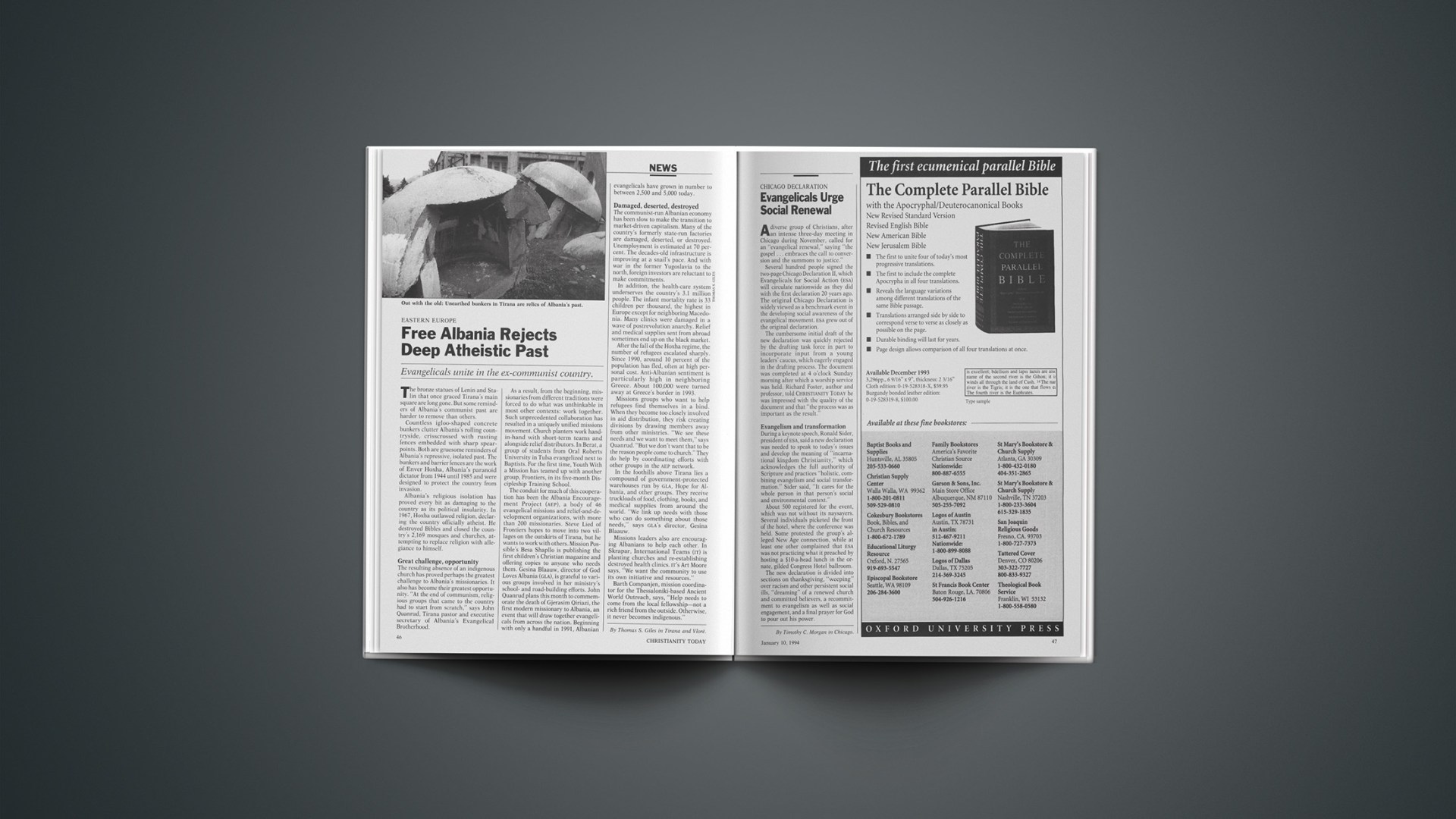A diverse group of Christians, after an intense three-day meeting in Chicago during November, called for an “evangelical renewal,” saying “the gospel … embraces the call to conversion and the summons to justice.” Several hundred people signed the two-page Chicago Declaration II, which Evangelicals for Social Action (ESA) will circulate nationwide as they did with the first declaration 20 years ago. The original Chicago Declaration is widely viewed as a benchmark event in the developing social awareness of the evangelical movement. ESA grew out of the original declaration.
The cumbersome initial draft of the new declaration was quickly rejected by the drafting task force in part to incorporate input from a young leaders’ caucus, which eagerly engaged in the drafting process. The document was completed at 4 o’clock Sunday morning after which a worship service was held. Richard Foster, author and professor, told CHRISTIANITY TODAY he was impressed with the quality of the document and that “the process was as important as the result.”
Evangelism and transformation
During a keynote speech, Ronald Sider, president of ESA, said a new declaration was needed to speak to today’s issues and develop the meaning of “incarnational kingdom Christianity,” which acknowledges the full authority of Scripture and practices “holistic, combining evangelism and social transformation.” Sider said, “It cares for the whole person in that person’s social and environmental context.”
About 500 registered for the event, which was not without its naysayers. Several individuals picketed the front of the hotel, where the conference was held. Some protested the group’s alleged New Age connection, while at least one other complained that ESA was not practicing what it preached by hosting a $10-a-head lunch in the ornate, gilded Congress Hotel ballroom.
The new declaration is divided into sections on thanksgiving, “weeping” over racism and other persistent social ills, “dreaming” of a renewed church and committed believers, a recommitment to evangelism as well as social engagement, and a final prayer for God to pour out his power.
By Timothy C. Morgan in Chicago.










